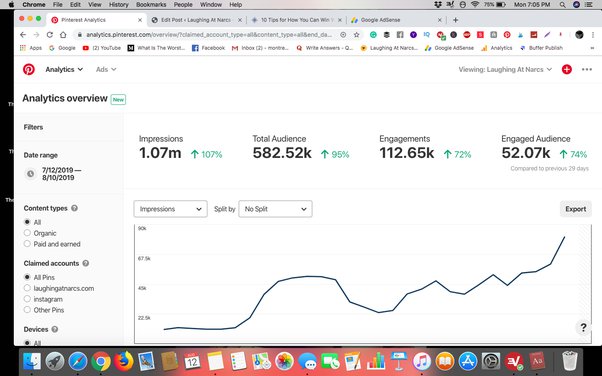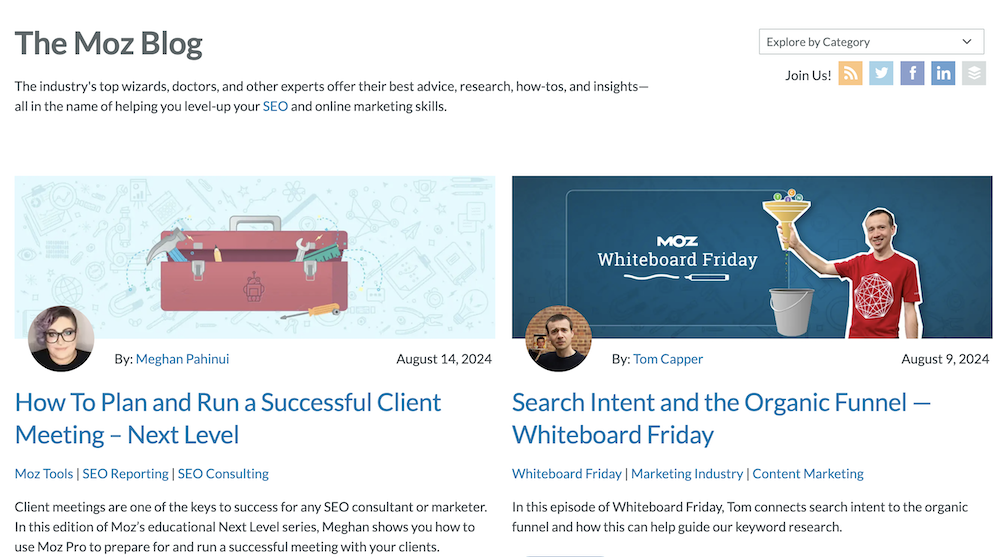Table of Contents
ToggleThe Rise of Niche Sites: The Predecessors of Modern Blog Marketing
The concept of niche sites, which gained popularity around a decade ago, was essentially based on blogging. I was part of this movement and this type of website, of which I had several, sustained me financially for years.
These sites were highly focused on specific topics, allowing creators to build dedicated audiences by providing valuable, targeted content. Mine, without being too specific, were in a variety of niches including: kitchen, outdoor, security, and more.
According to a 2014 report by eMarketer, niche blogs and websites were some of the most effective ways to reach specific audiences, with 70% of consumers preferring to learn about products through content rather than traditional advertisements.
They looked like this (from 2015):

Niche sites experienced a golden age in the early 2010s, as bloggers leveraged SEO tactics to rank highly in search engines, attracting significant traffic and generating revenue through affiliate marketing and ads.
For example, Pat Flynn’s Smart Passive Income blog, which started as a niche site focusing on personal finance, reportedly earned over $100,000 per month at its peak.
The Power of Blog Marketing: Statistics That Prove Its Efficacy

Traffic Generation
To this day, blogs are a major driver of website traffic.
According to HubSpot’s State of Marketing Report 2022, companies that blog receive 97% more links to their websites and are 13 times more likely to see a positive ROI from their efforts.
This is largely because blog posts can be optimized for search engines, driving organic traffic over time.
Lead Generation
Blogs are also a crucial tool for lead generation.
Demand Metric reports that content marketing, including blogs, generates three times as many leads as traditional outbound marketing but costs 62% less.
Businesses that blog regularly are also more likely to convert leads into customers, with HubSpot noting that companies that blog 16+ times per month get 4.5 times more leads than those that blog less than four times per month.

Establishing Authority
Blogging helps establish businesses as thought leaders in their industry.
The Content Marketing Institute found that 60% of consumers feel more positive about a company after reading custom content on its blog . This not only builds trust but also encourages customer loyalty.
SEO Benefits
SEO is a key component of successful blog marketing.
Google‘s algorithms favor fresh, relevant content, making blogs an essential part of an effective SEO strategy.
According to Backlinko, websites with regularly updated blogs are 434% more likely to be indexed by search engines, leading to higher rankings and increased visibility (Influencer Marketing Hub).
Long-Term Impact
Blog content can have a long-lasting impact. Unlike paid advertising, which stops driving traffic once you stop paying, a well-optimized blog post can continue to attract visitors for years.
Orbit Media reports that over 75% of their blog traffic comes from old posts, demonstrating the enduring value of content marketing (Jotform).
Real-World Examples: How Businesses Have Thrived Through Blog Marketing
Buffer
The social media management company Buffer built its brand largely through blog marketing.
By focusing on content that addressed the needs of their target audience—social media managers—they grew their blog to over 1.5 million monthly readers, driving significant growth in both traffic and revenue.
Moz
Moz, a leading SEO software company, has used its blog to establish itself as an authority in the SEO industry.
Their blog, which covers topics from keyword research to Google algorithm updates, attracts millions of readers, many of whom become customers.

Neil Patel
Neil Patel, a digital marketing expert, has used his blog to build a personal brand and grow multiple businesses.
His blog posts, which often rank at the top of search engine results for competitive keywords, generate millions of dollars in revenue through SEO consulting, tools, and online courses.
The Future of Blog Marketing: Adaptation and Growth

As we move further into the digital age, the landscape of blog marketing continues to evolve.
The rise of multimedia content—such as video blogs (vlogs), podcasts, and interactive content—means that businesses must diversify their blogging strategies to stay competitive.
This is where the idea of content marketing, which is often taken synonymously with blog marketing, can be taken one of two ways – content meaning blog or written content, or content meaning all content. Technically, content does go well beyond blogging, and so it can be good to delineate between blog marketing and content marketing, for that reason.
All in all, the core principles of providing valuable, SEO-optimized content remain as relevant as ever.
The effectiveness of blog marketing is undeniable.
From its roots in niche sites to its current status as a cornerstone of digital marketing, blogging has consistently proven to be a powerful tool for businesses looking to drive traffic, generate leads, and establish authority.
As the digital landscape continues to evolve, the businesses that continue to invest in high-quality, relevant blog content will be the ones that thrive.

Call or Text Starscape SEO: (519) 208-8680

Sources:
- eMarketer, 2014.
- HubSpot’s State of Marketing Report 2022.
- Demand Metric, 2020.
- Content Marketing Institute, 2021.
- Backlinko, 2021.
- Orbit Media, 2022.
- Buffer, 2022.
- Moz, 2023.
- Neil Patel, 2023.

